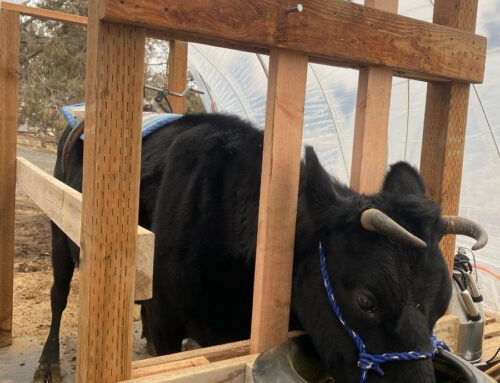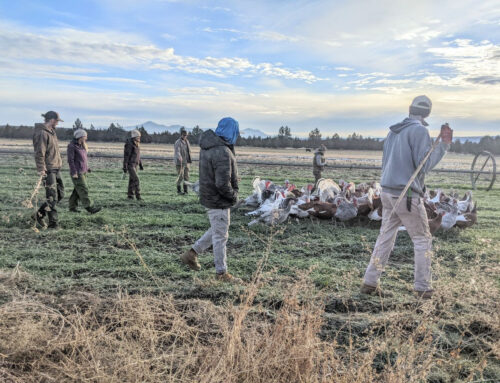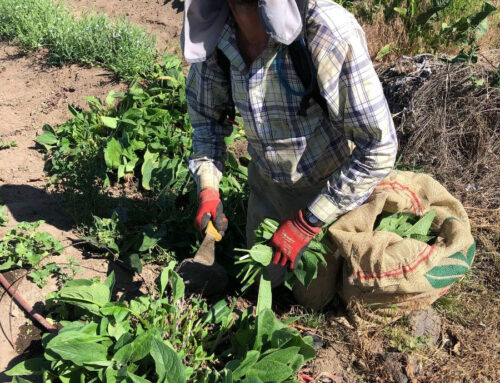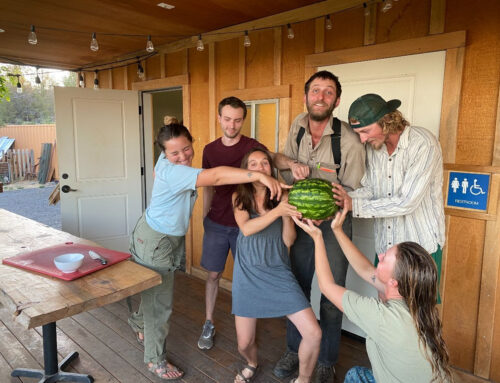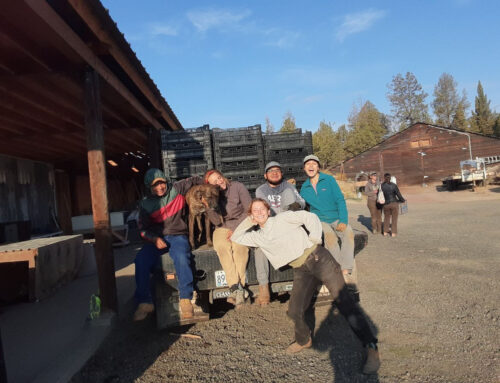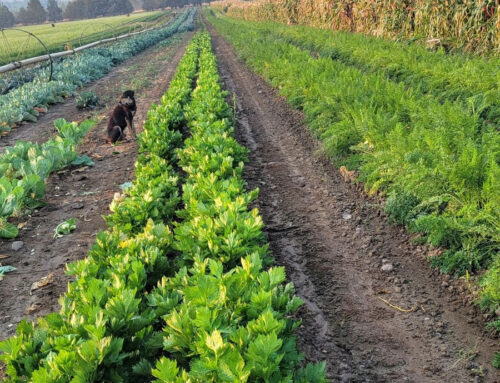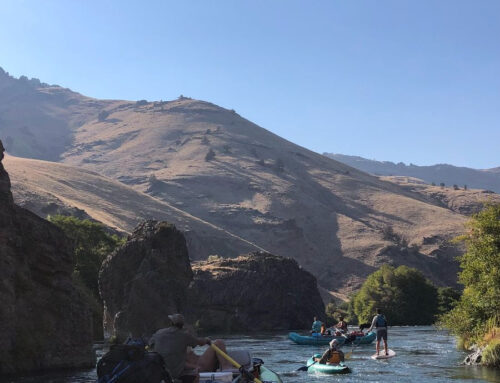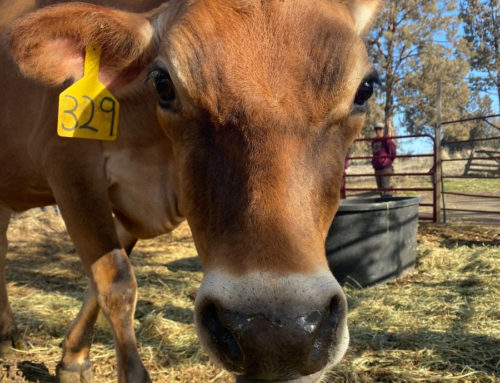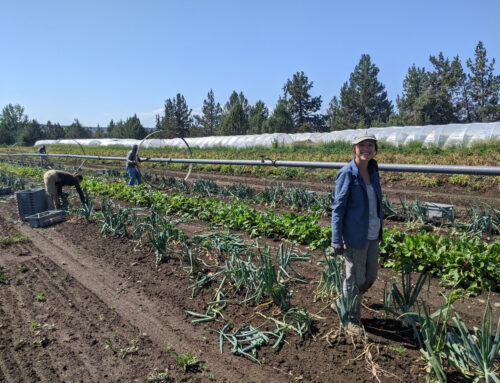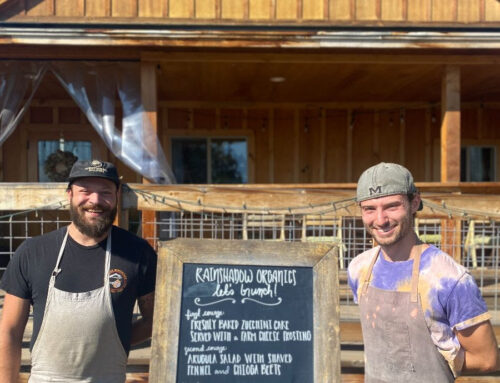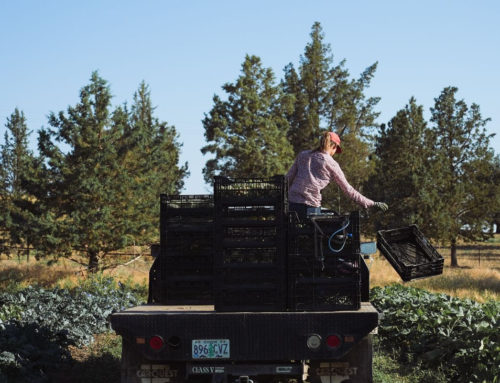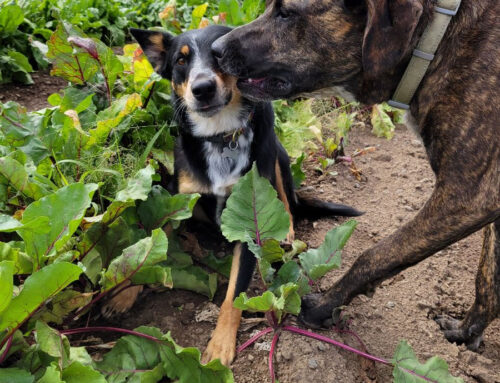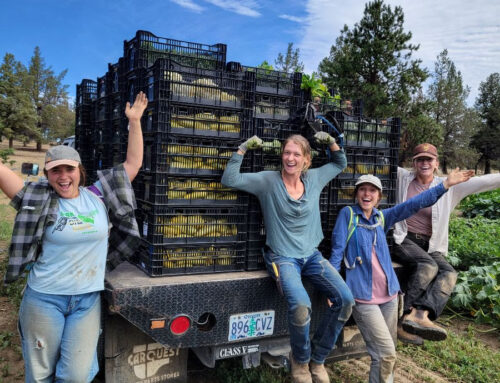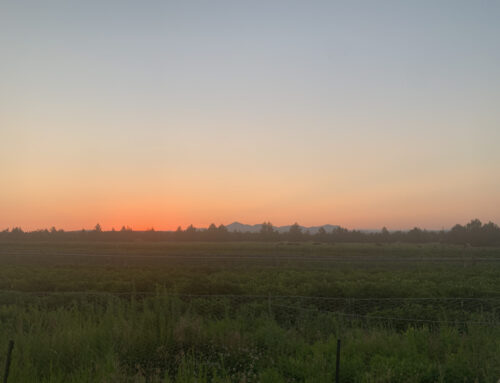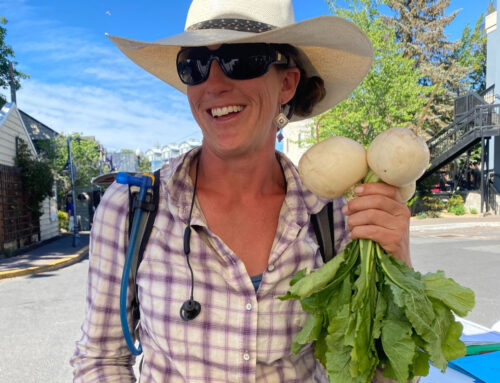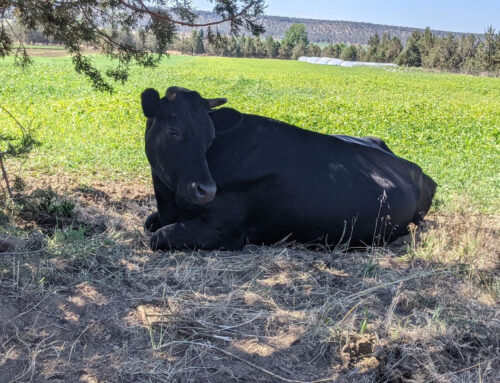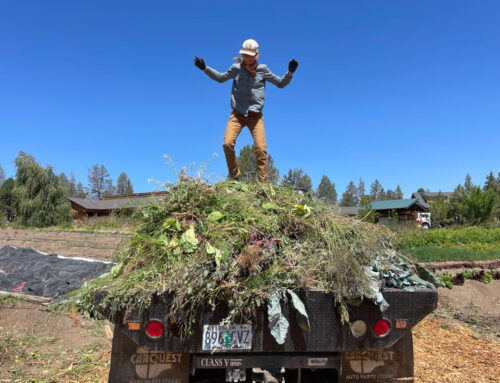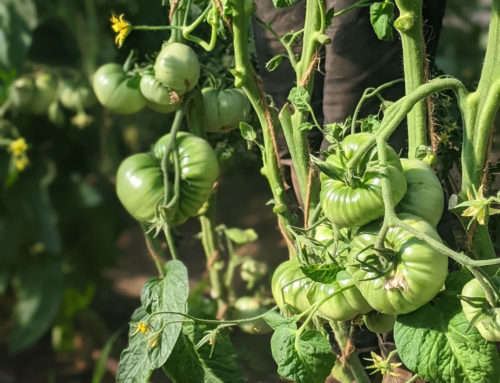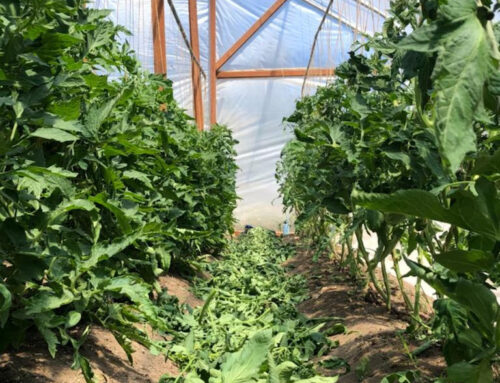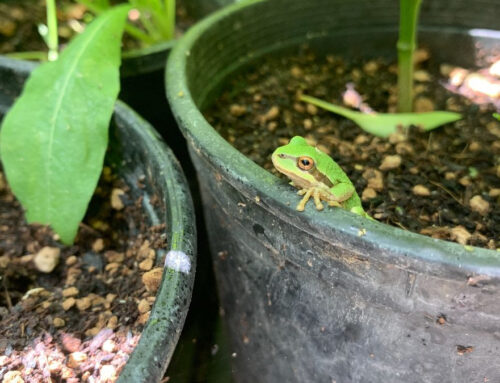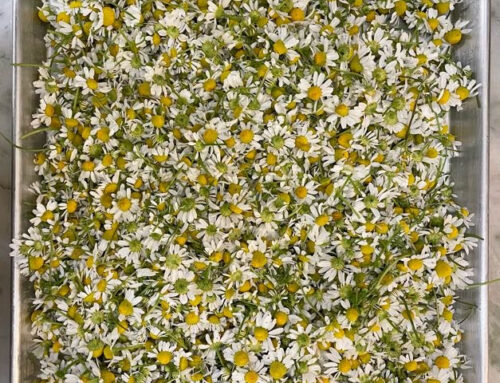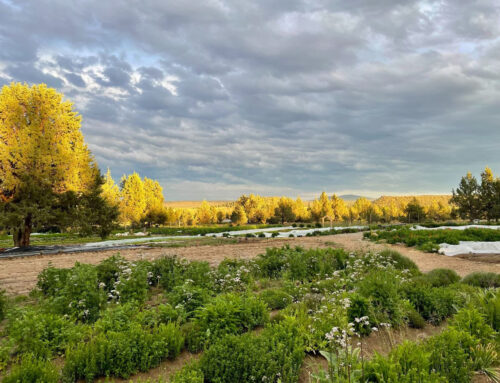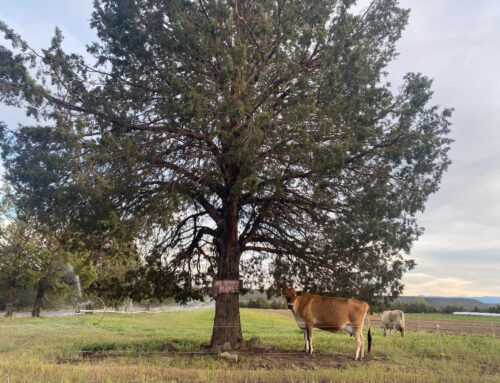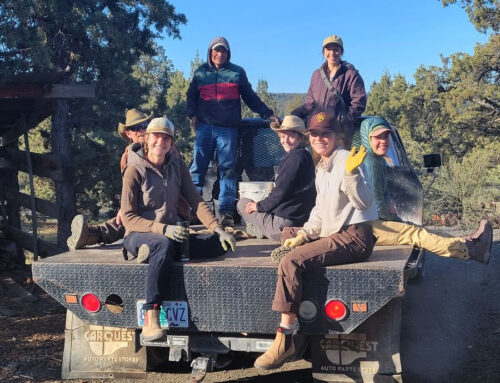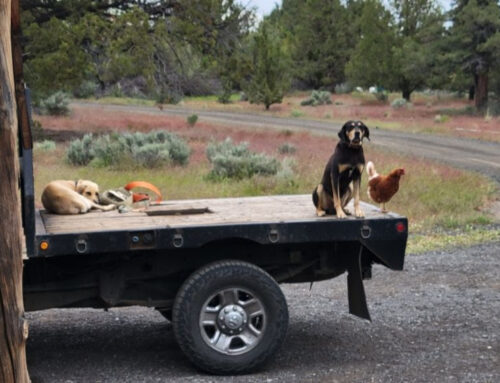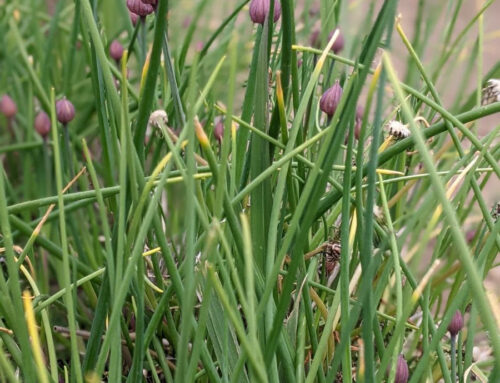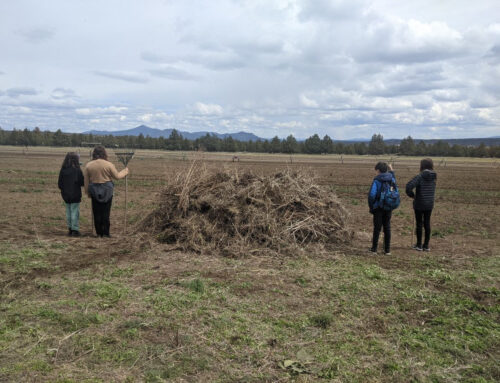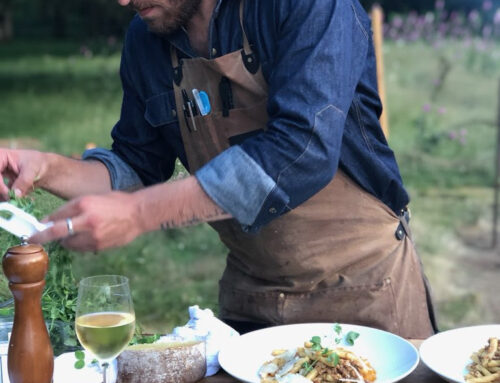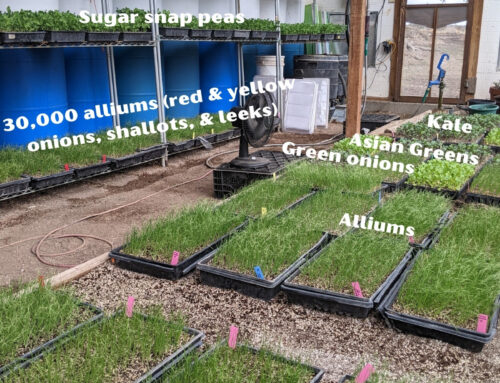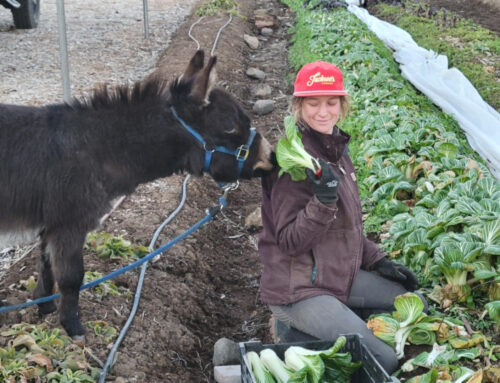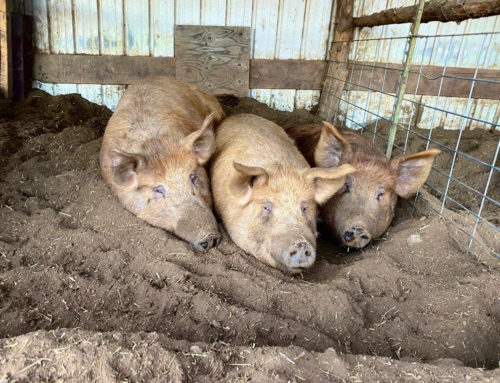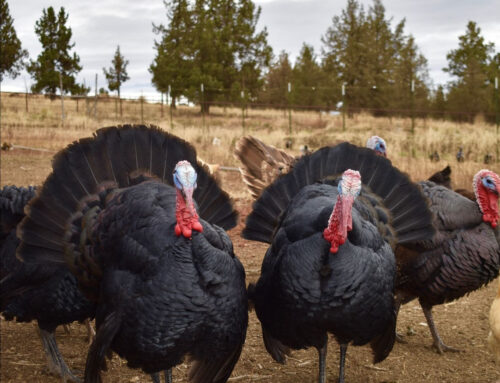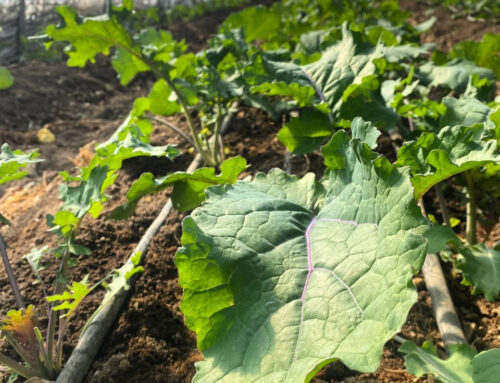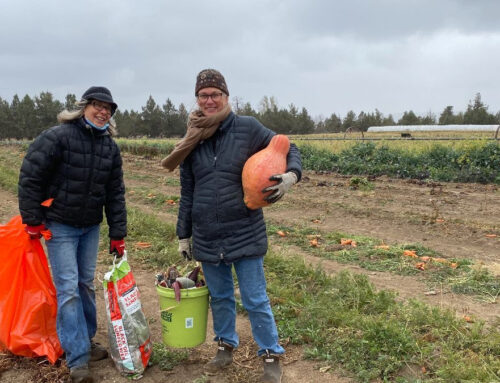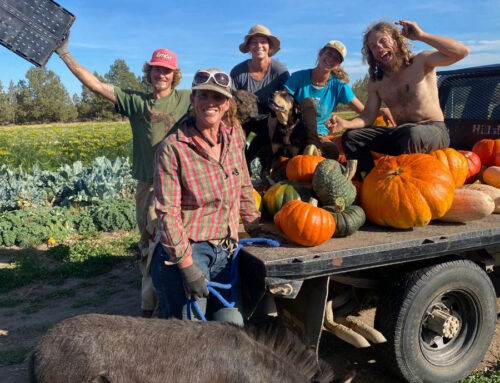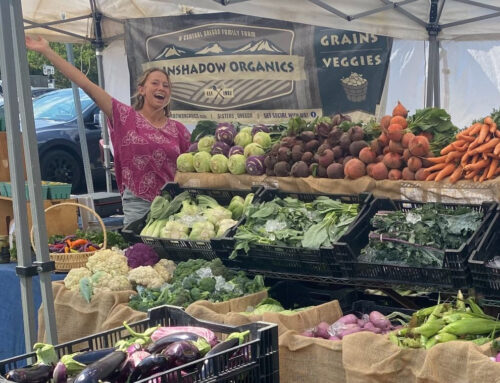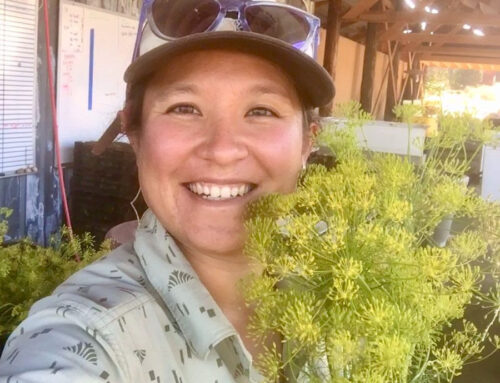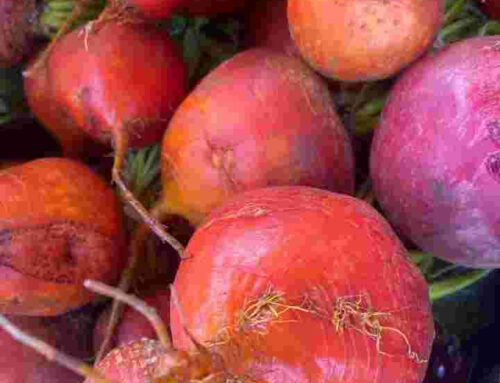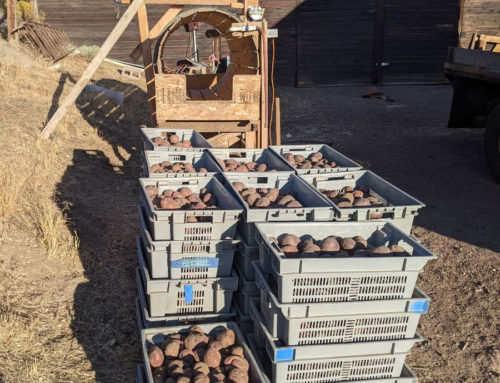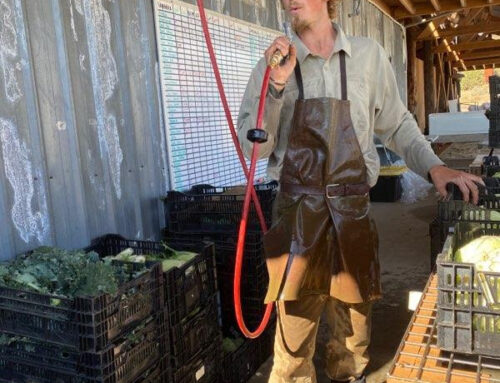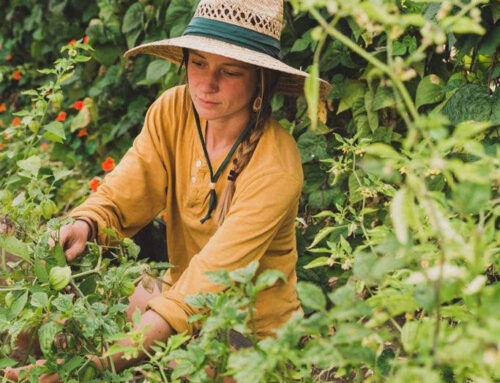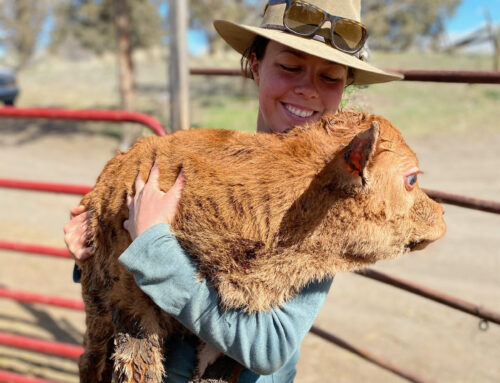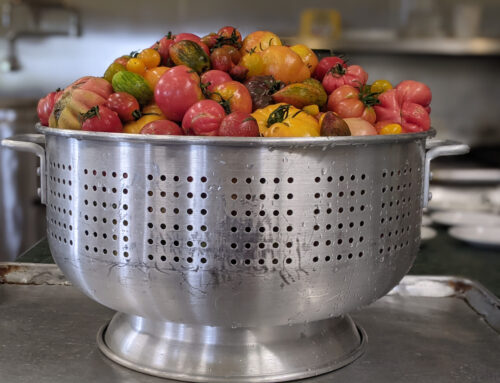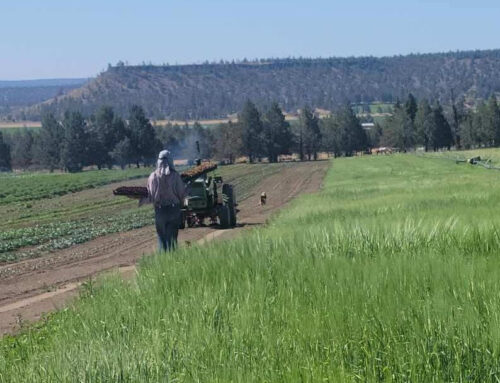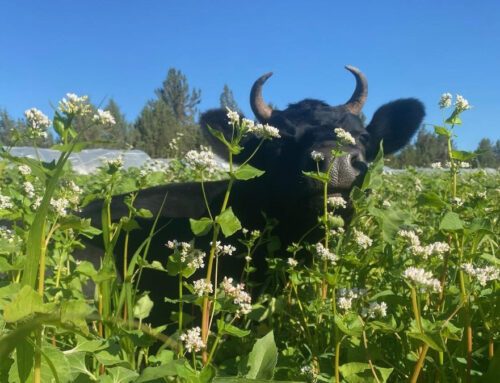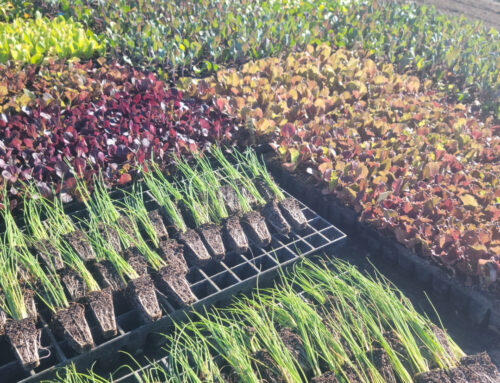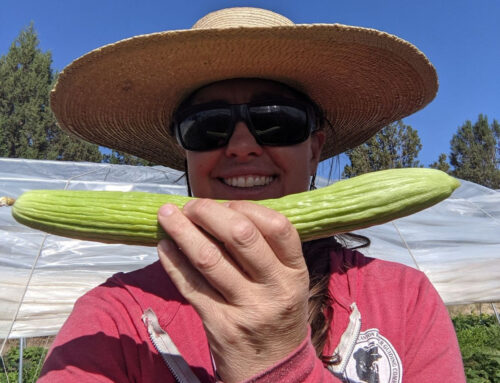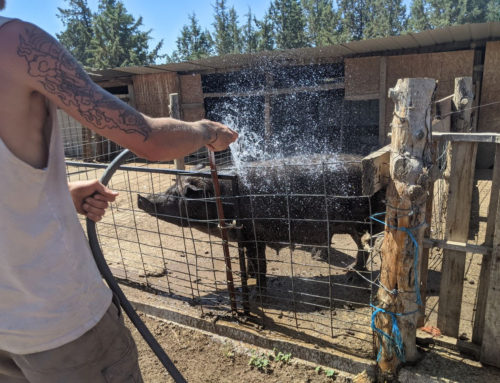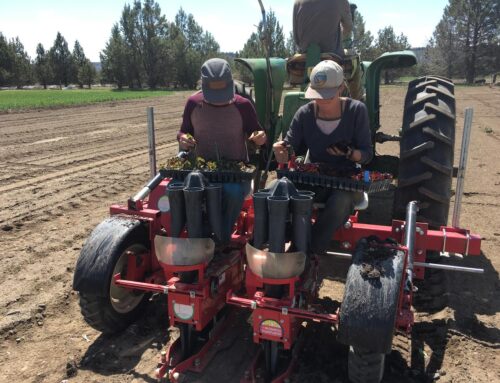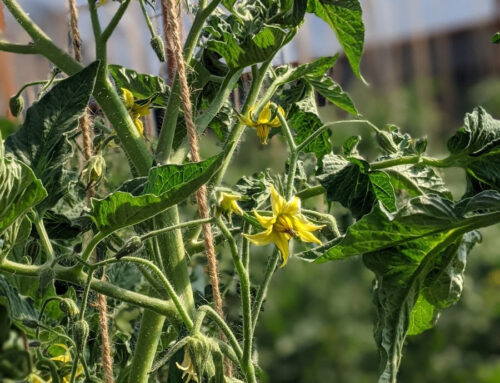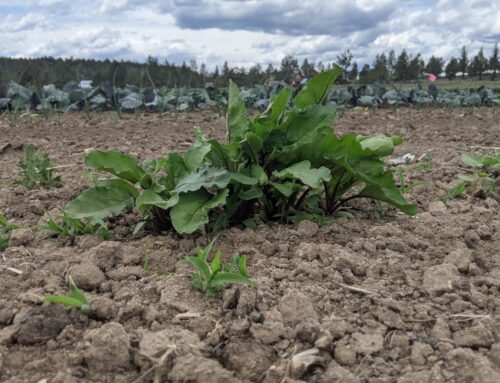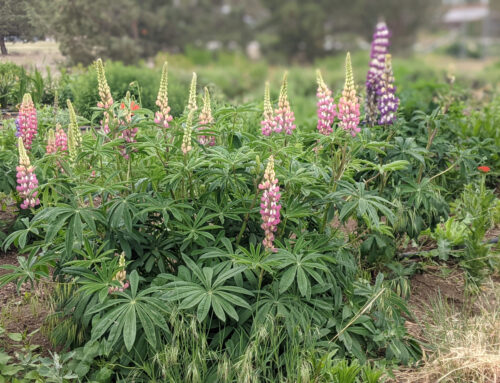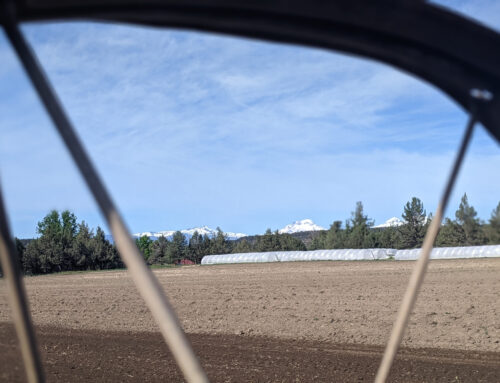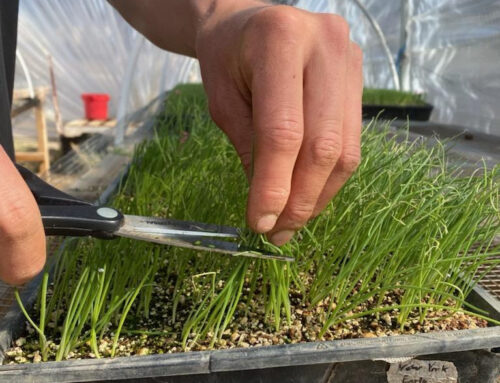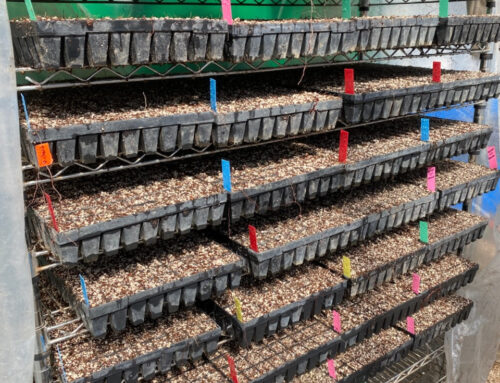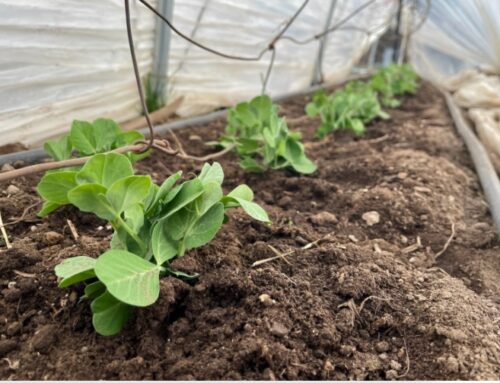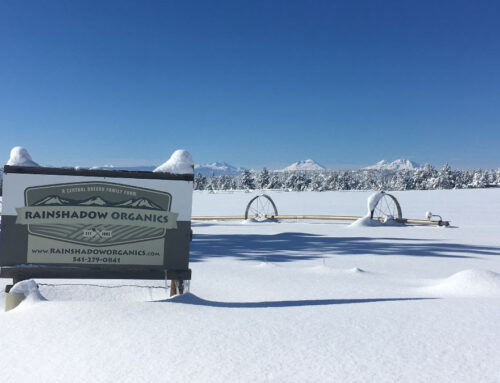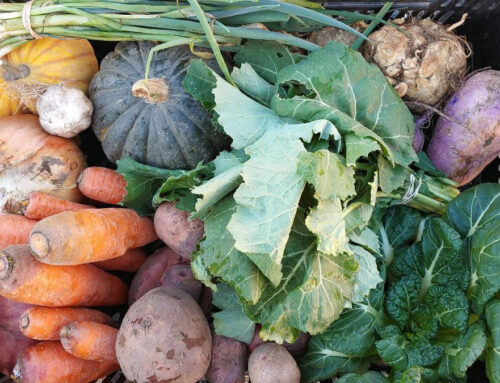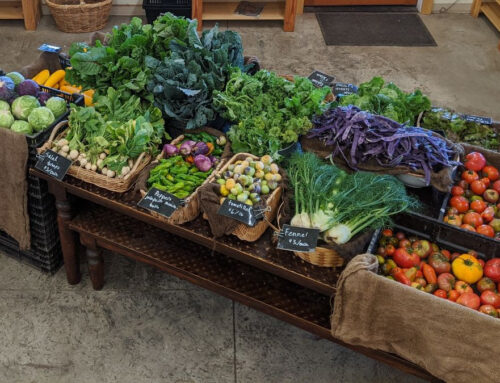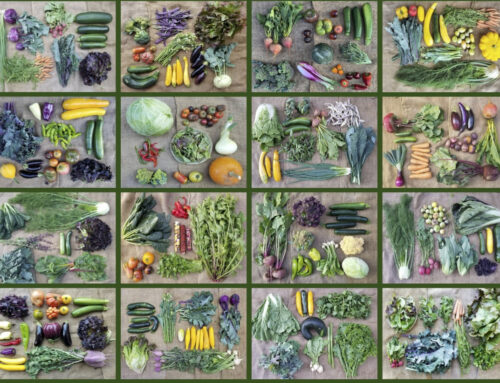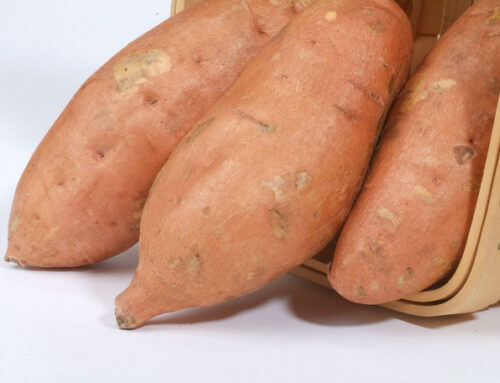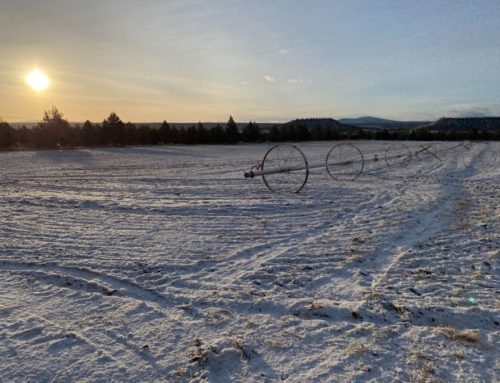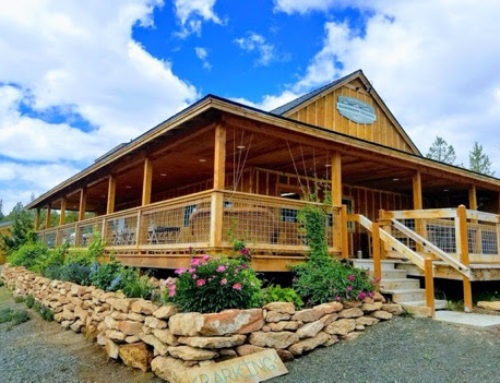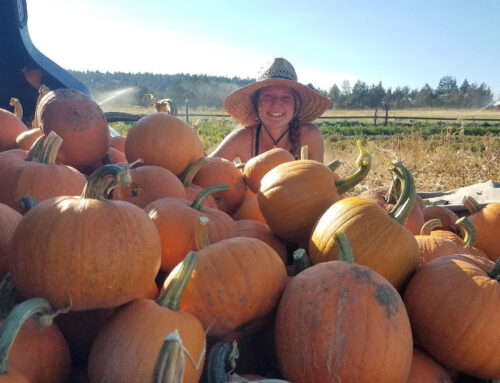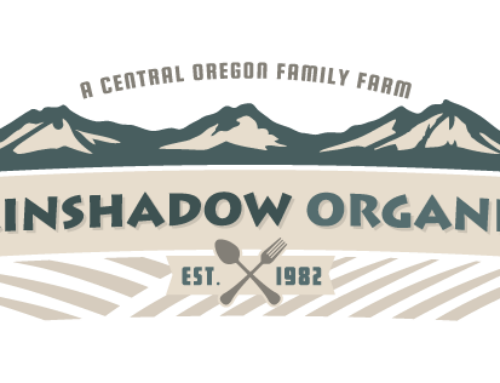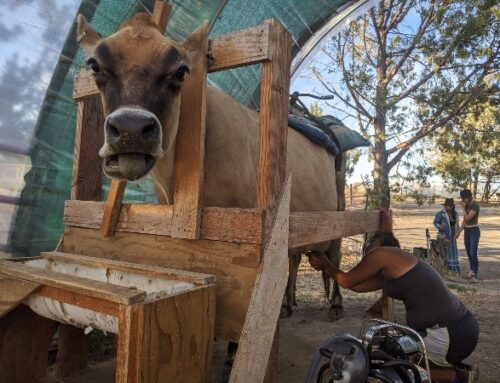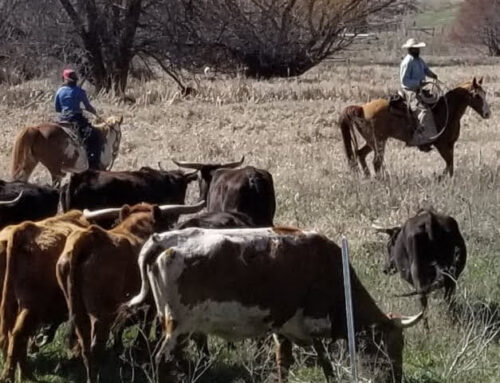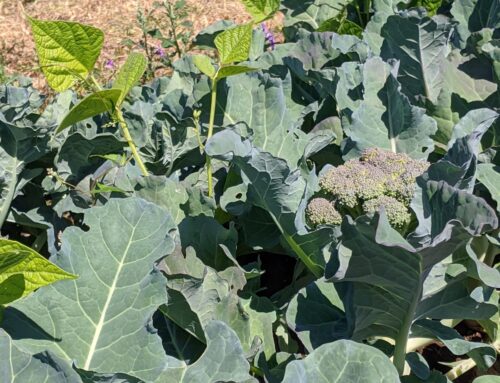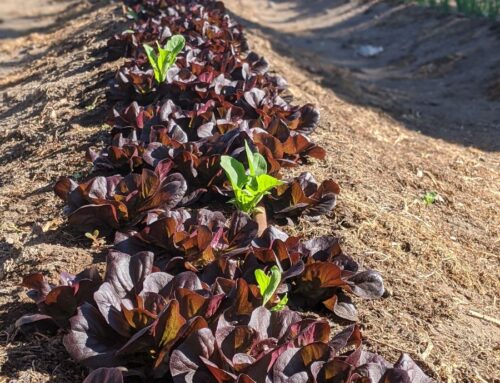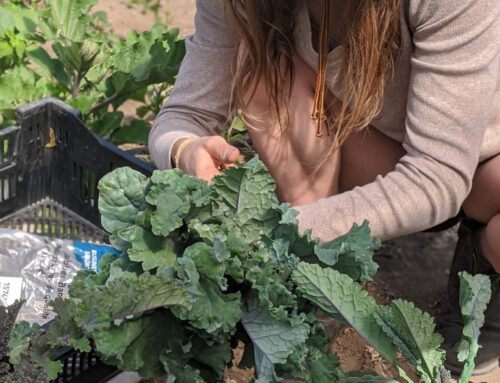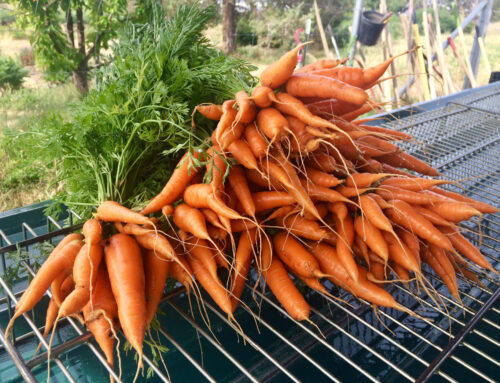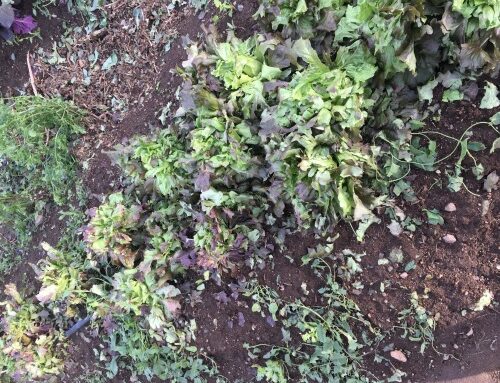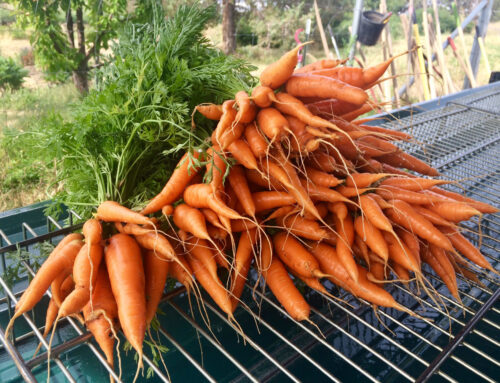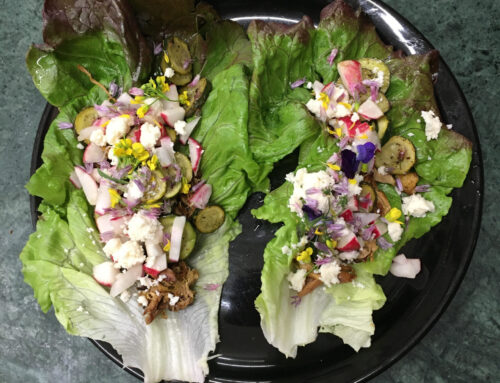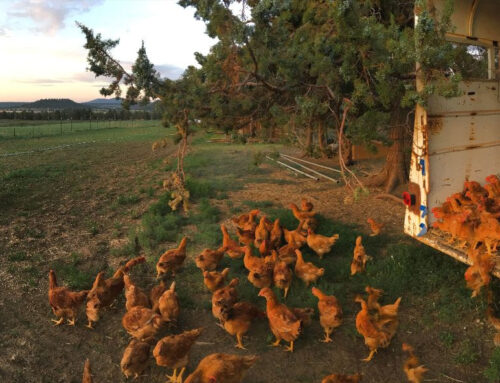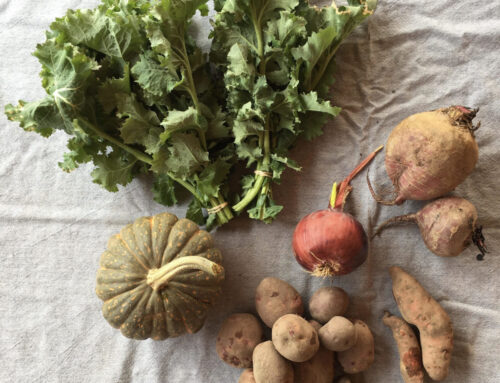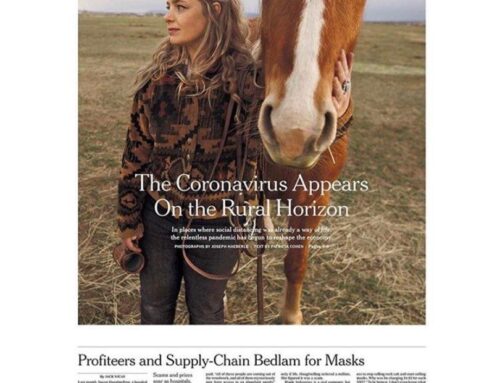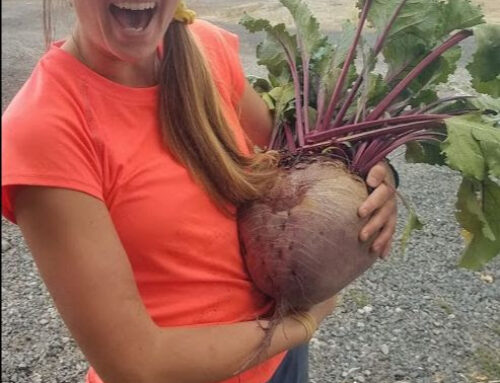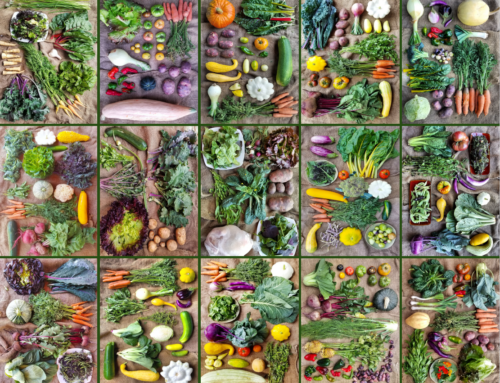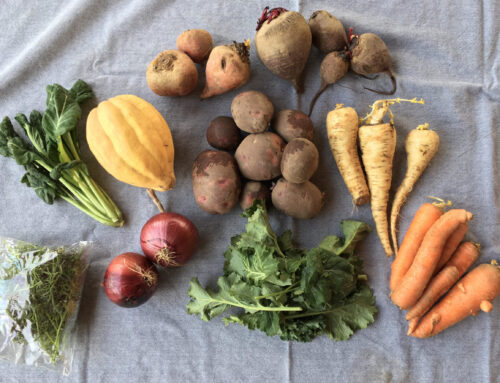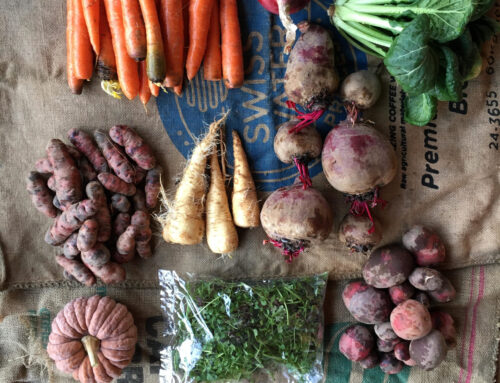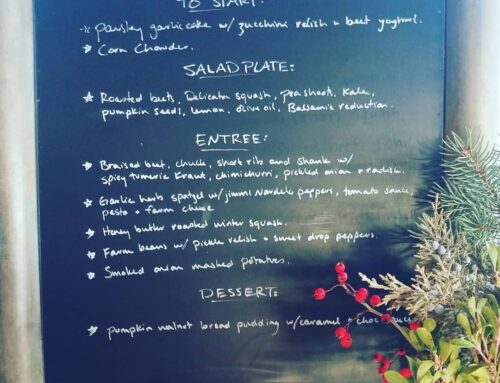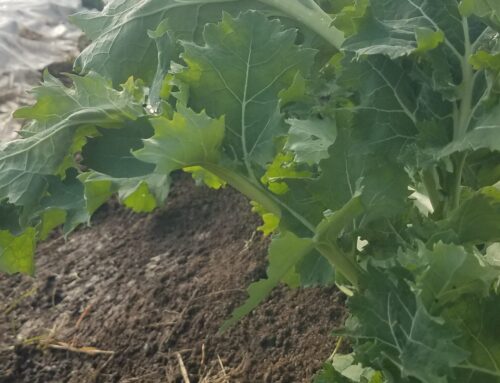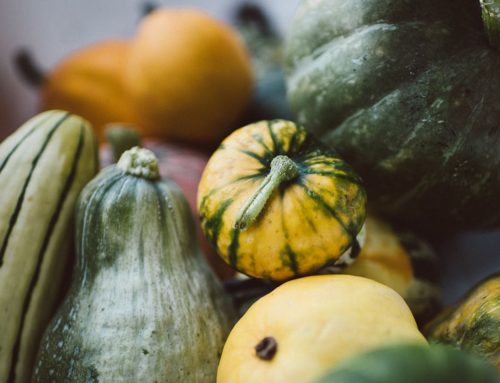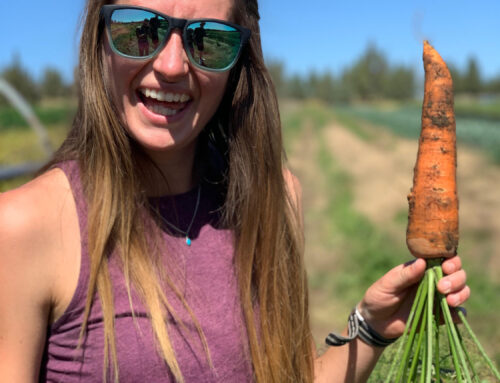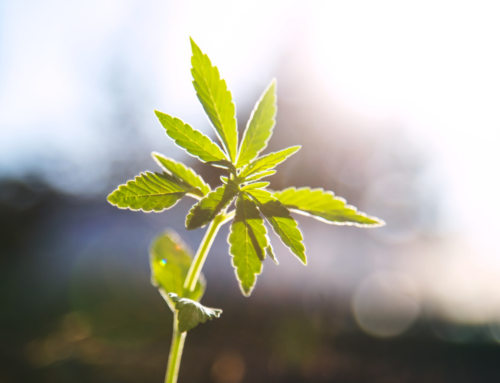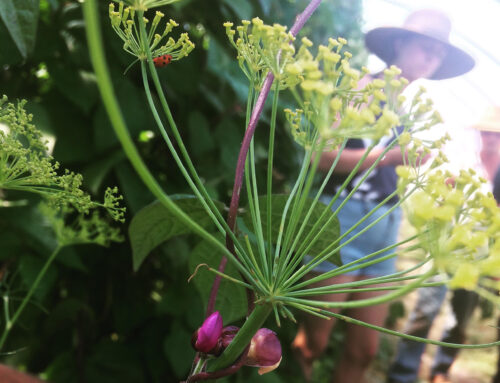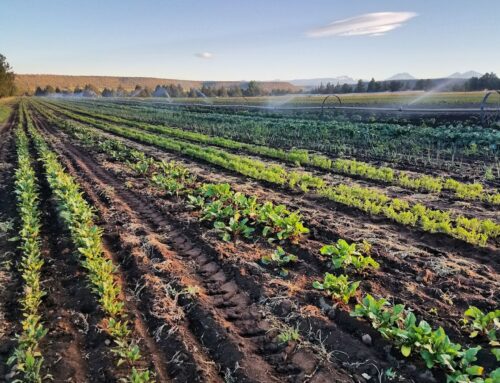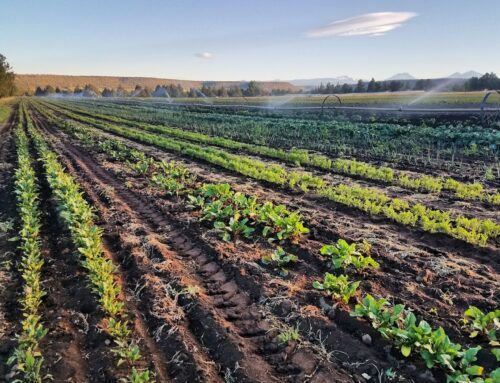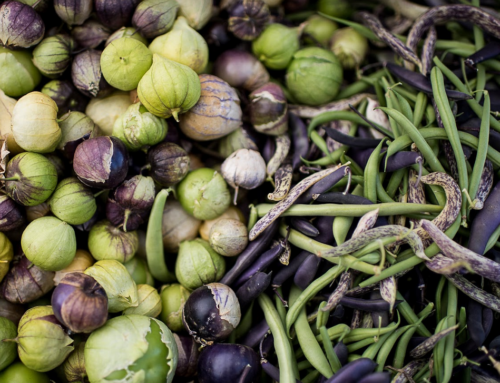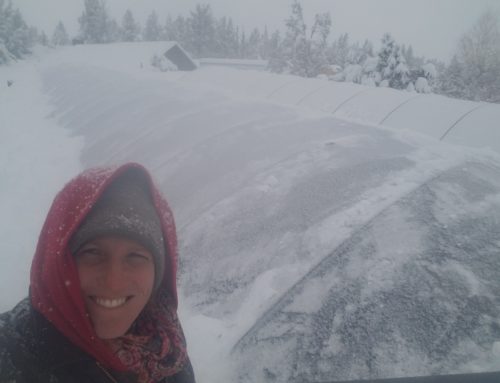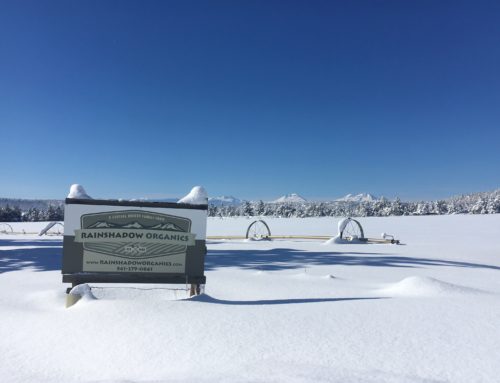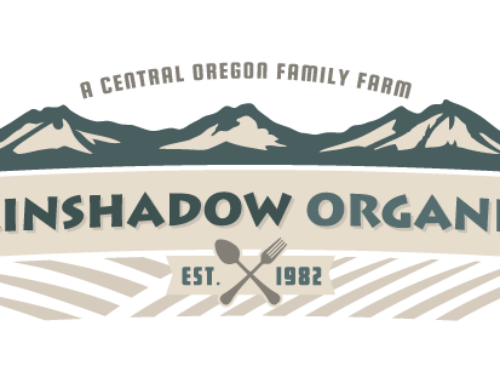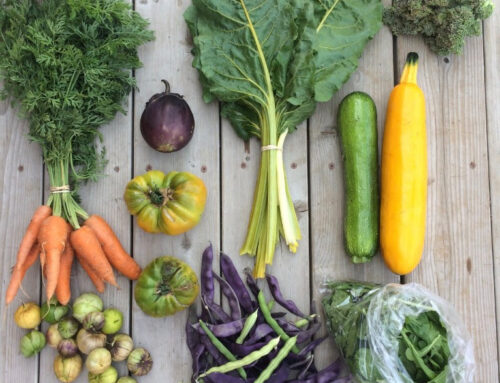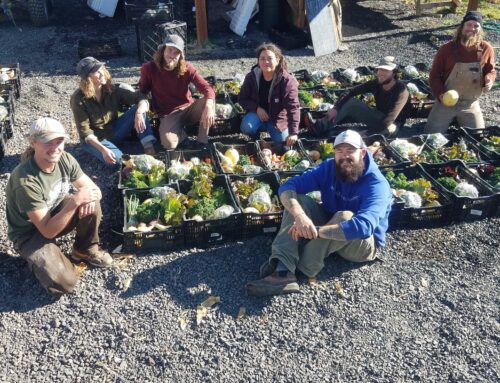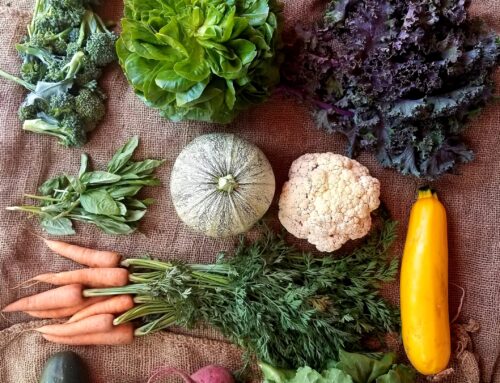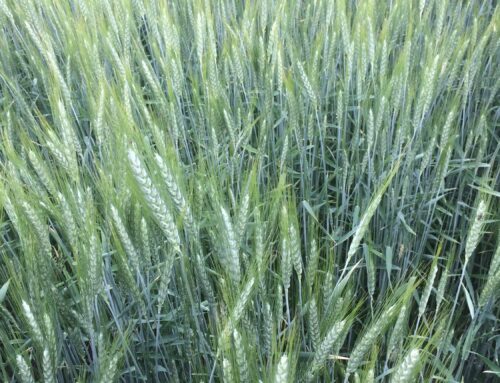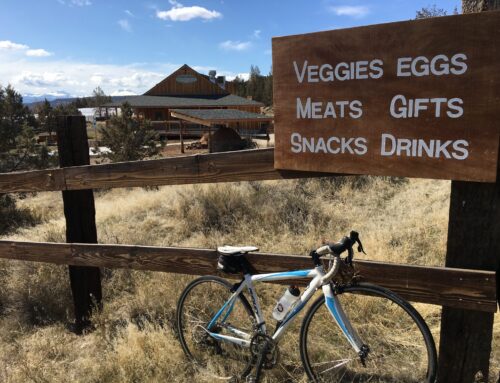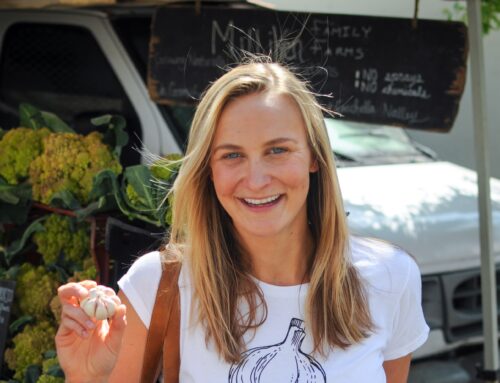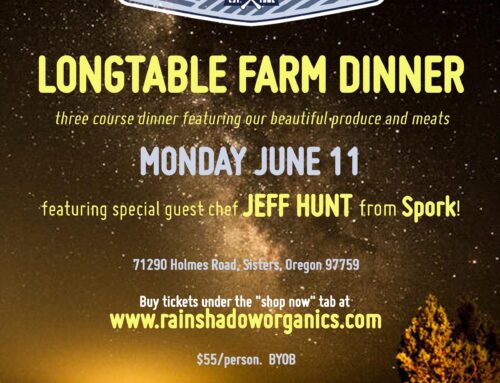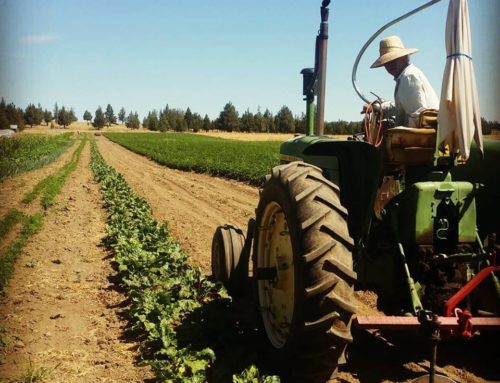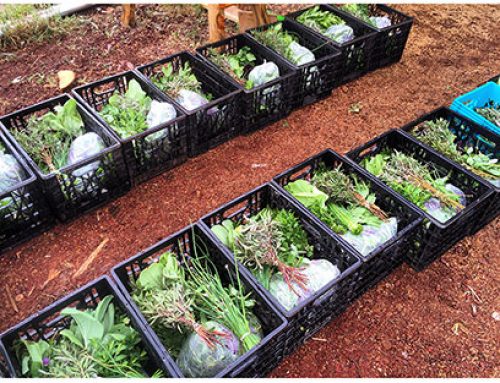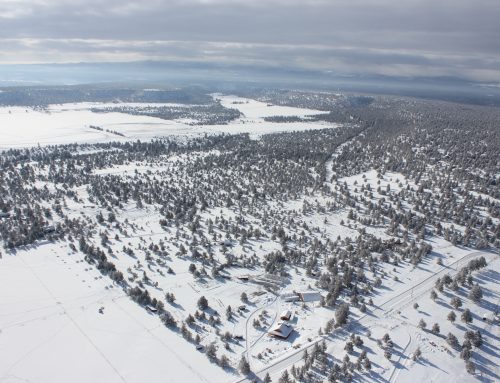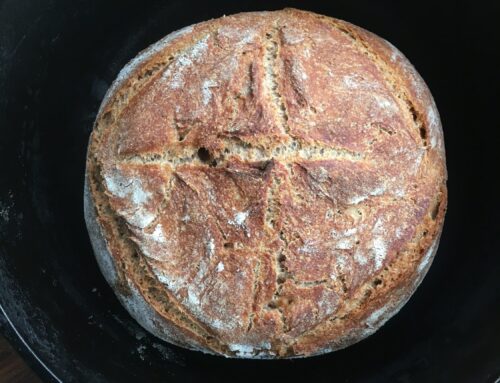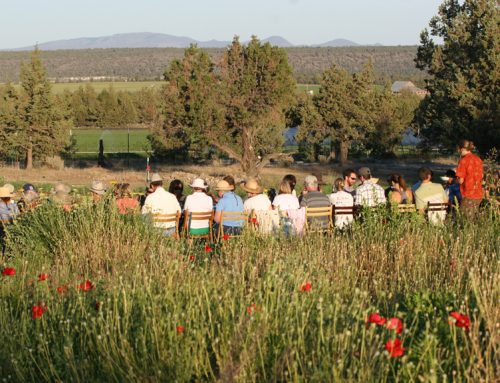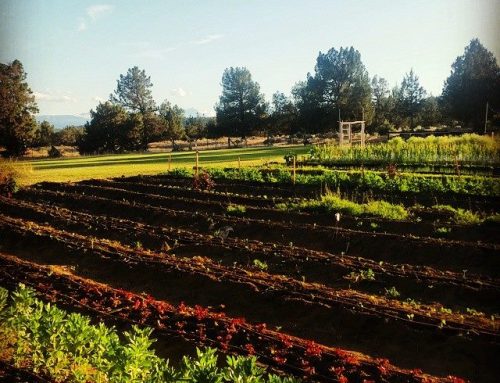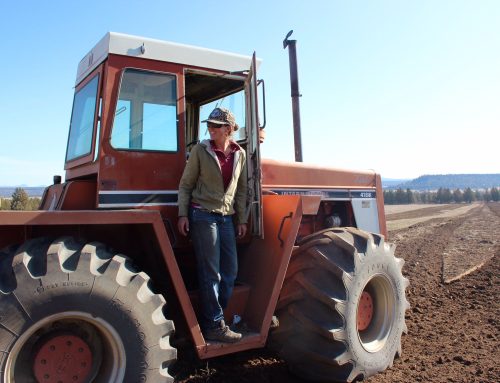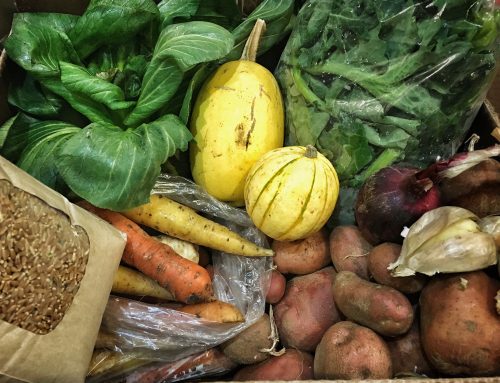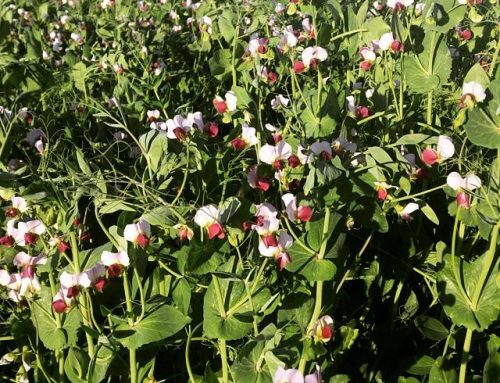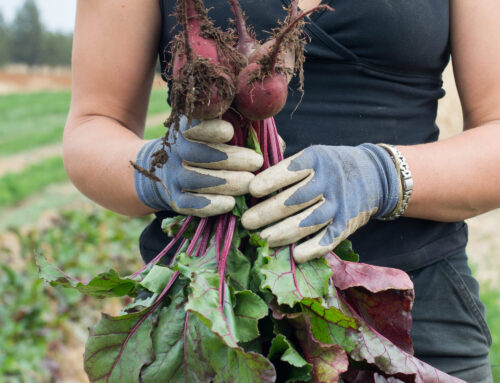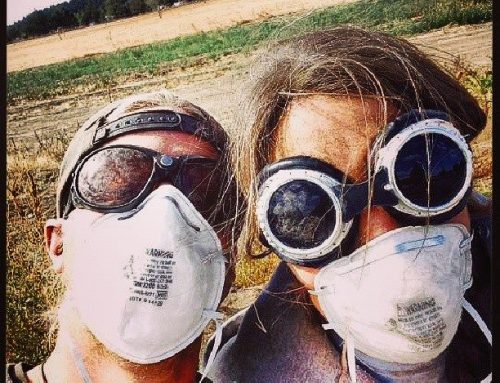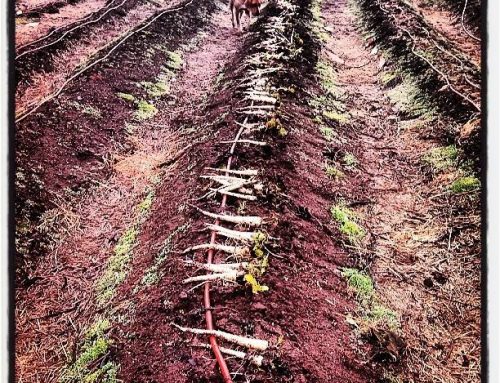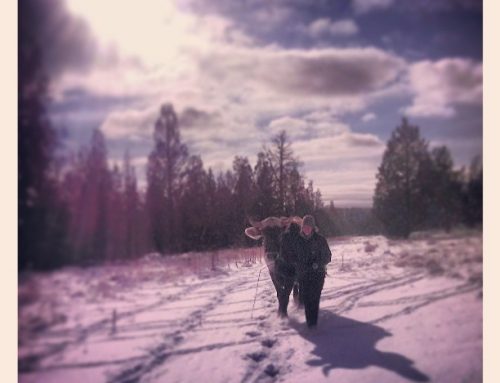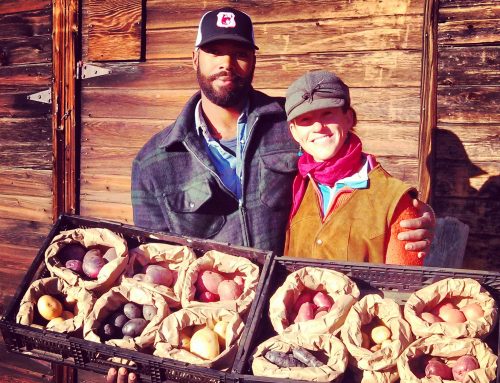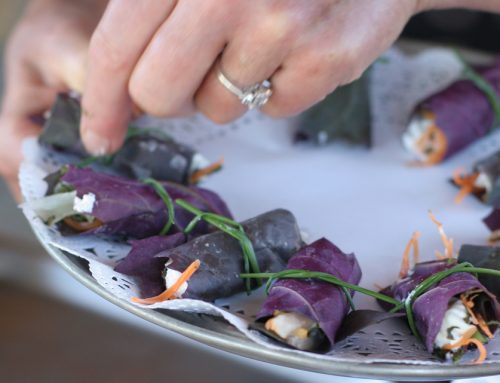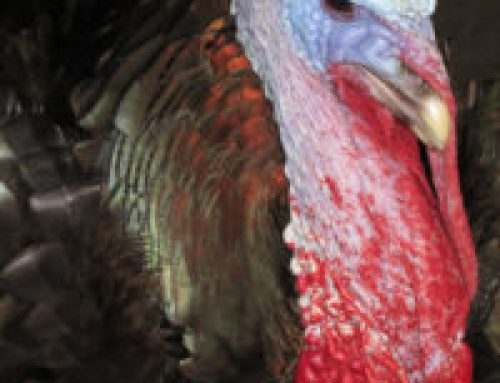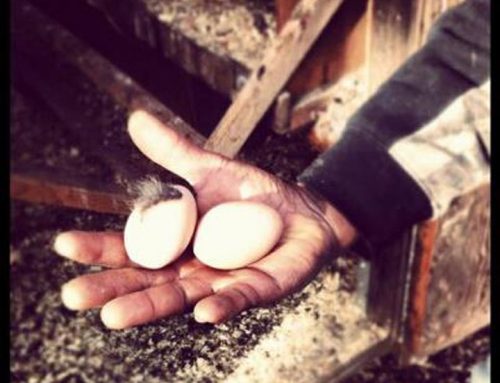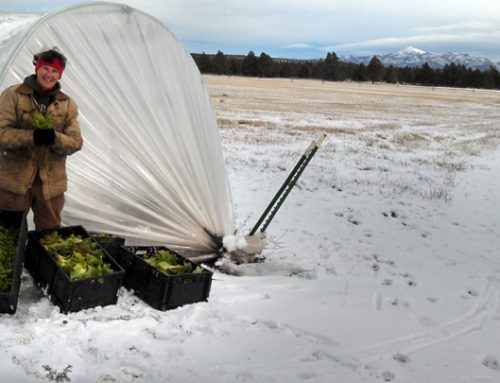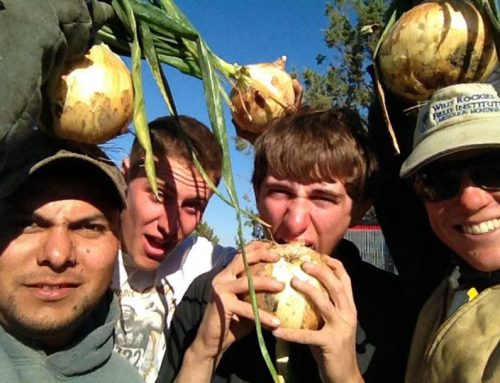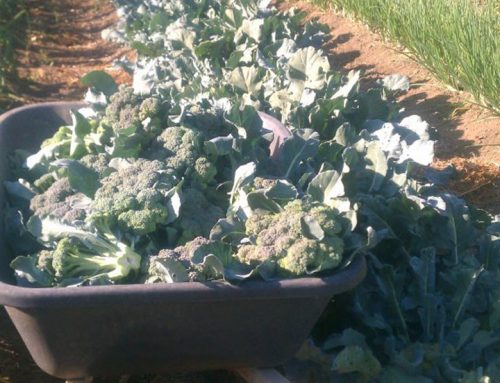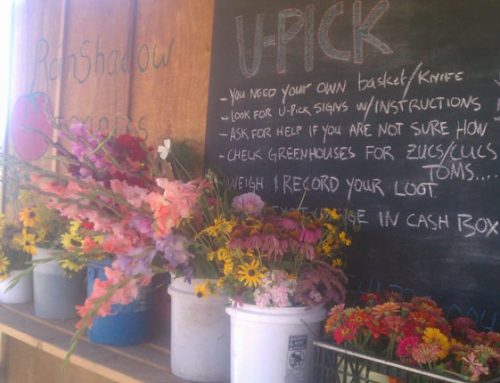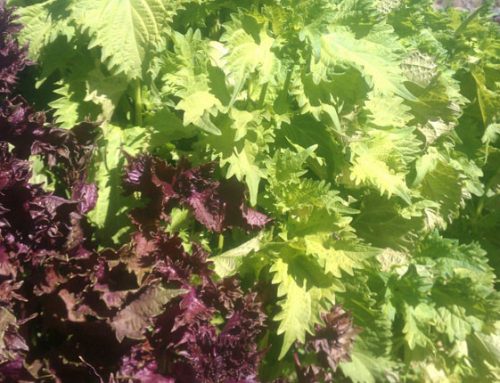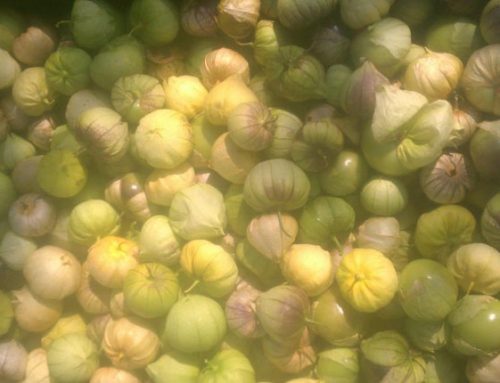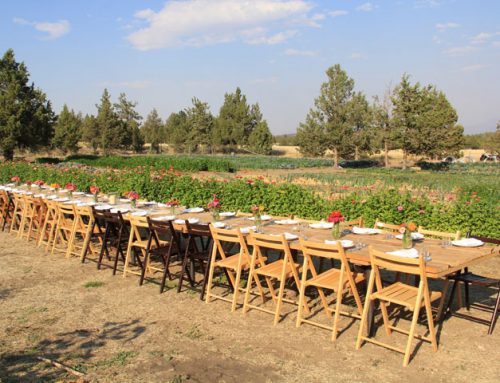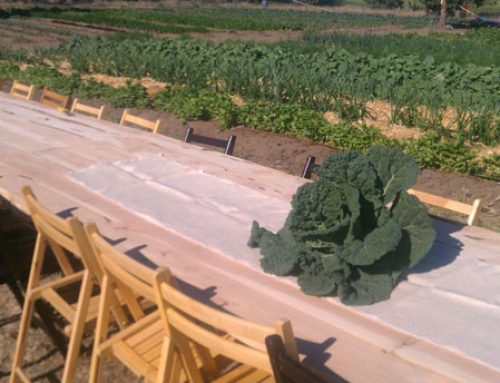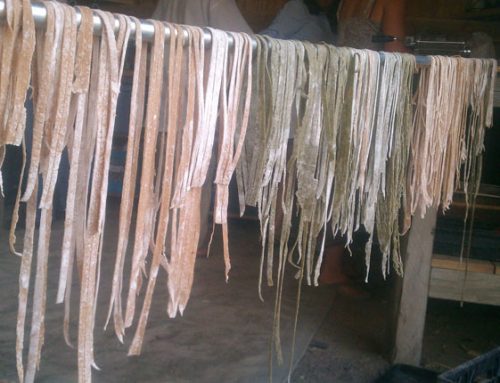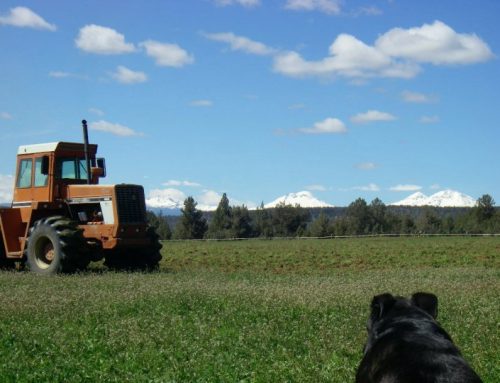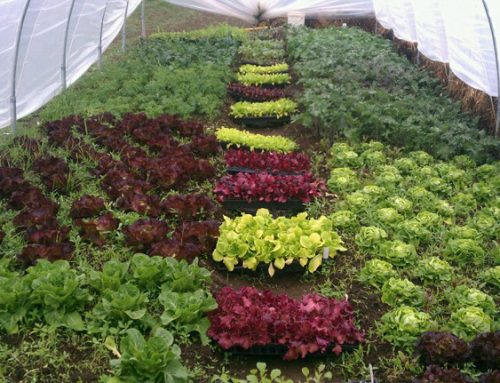| We focus on the vegetables at Rainshadow Organics a lot, but did you know that we are a Full Diet farm? That means that we grow it all: grains, dairy, eggs, flowers, vegetables, and meat! In this month’s newsletter we wanted to focus on our beef program, Pitchfork T beef. The perfect pairing of both Ashanti and Sarahlee’s strengths! |
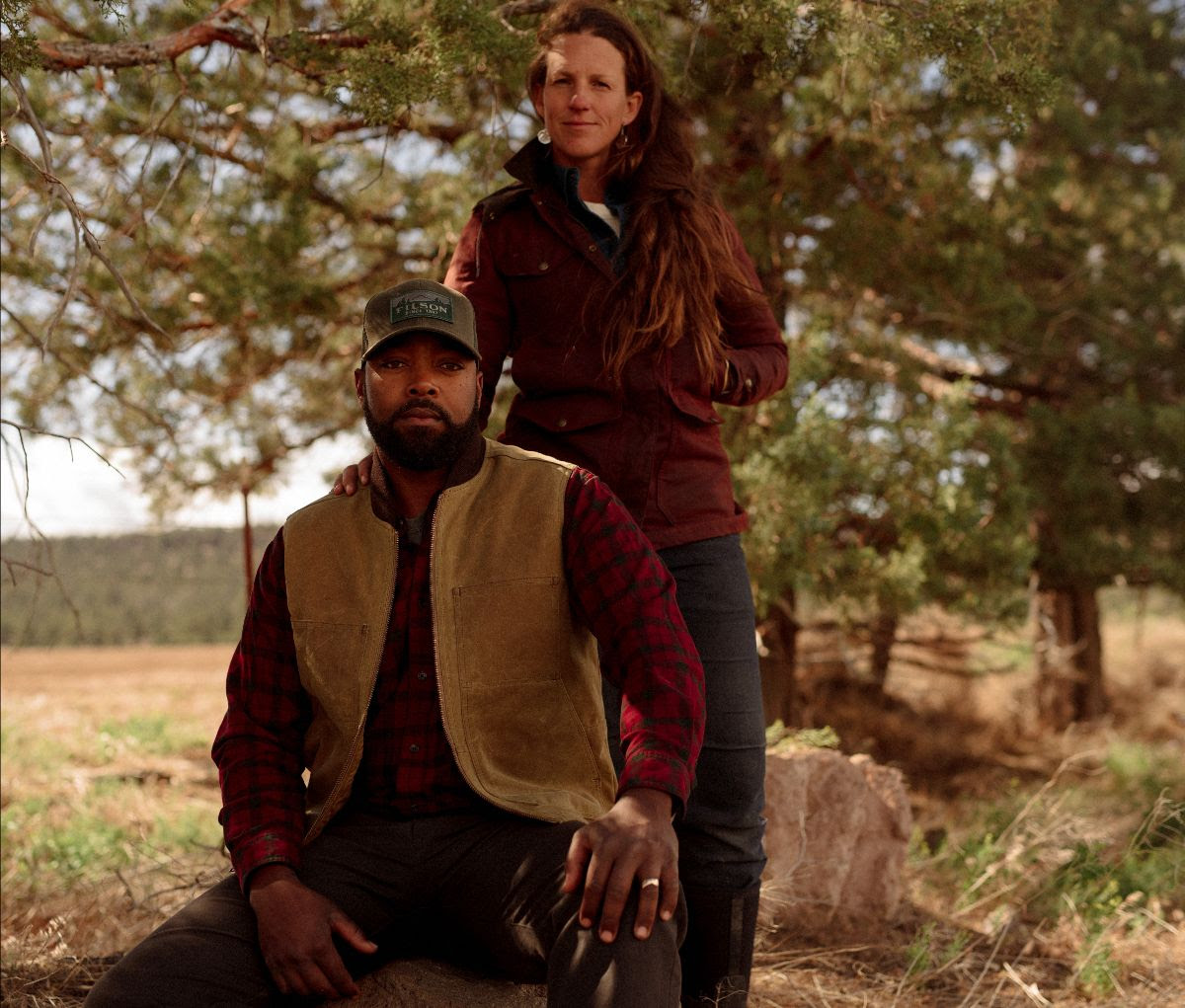
|
photo credit: Joseph Haeberle
|
While Pitchfork T beef has a different name, it is still Rainshadow Organics beef.
In order to raise a sustainable grass-fed grass-finished beef, it isn’t farmed, it is ranched. When Ashanti and Sarahlee added beef to the Rainshadow full diet, they started with a small herd, and leased land to raise it. As demand for the beef grew, it became a priority to acquire more property to give the cattle what they needed to be sustainably run.
In the fall of 2020, Ashanti and Sarahlee partnered with Ted and Phyllis Swindells, to purchase the ranch immediately to the north of Rainshadow Organics. They decided to keep the name and brand of the ranch, The Pitchfork-T, where the cattle can have their own place and their own story. Having a vertically integrated business, we always partner with ourselves. Rainshadow Organics’s beef is run on the Pitchfork-T ranch and branded with the Pitchfork-T brand.
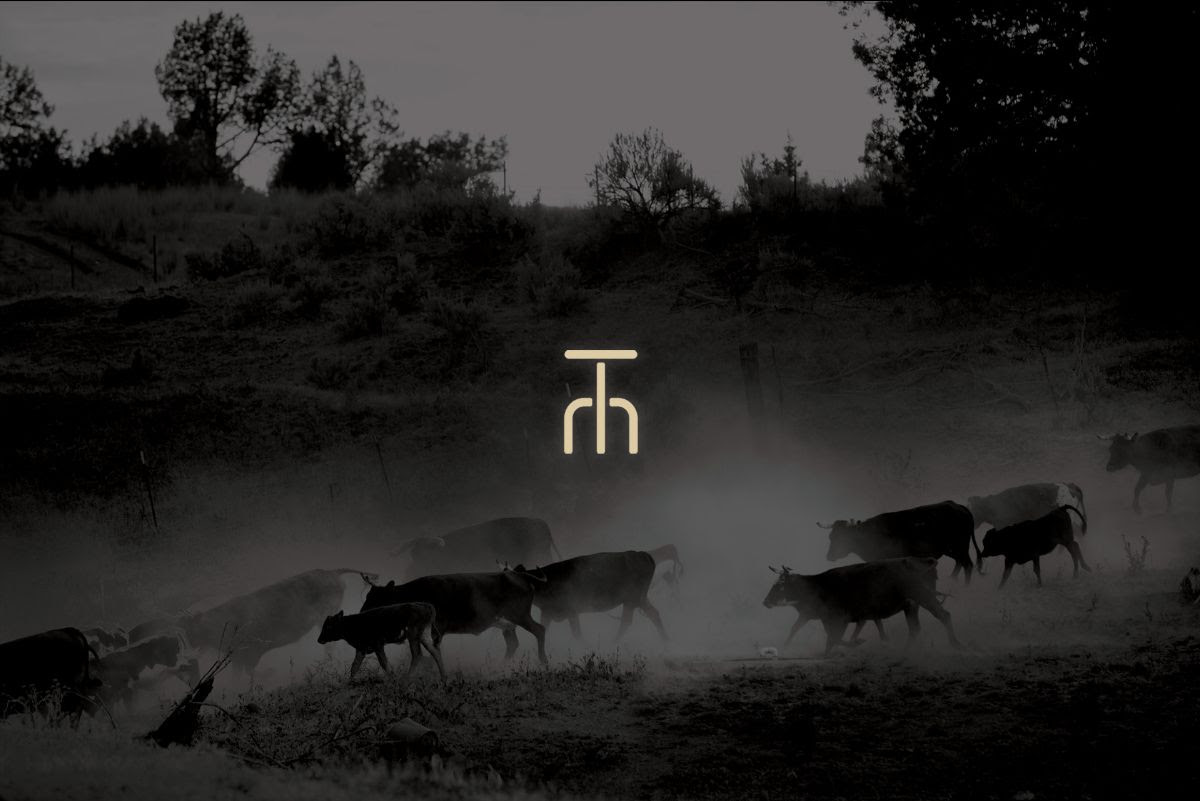
|
photo credit: Stephen Smith
|
How do we feed our beef?
The Pitchfork-T headquarters are immediately north of Rainshadow Organics. These 130 irrigated acres are where we raise our hay in the summer for the herd to eat in the winter. The herd spends the spring out the back gate on 17,000 acres around Alder Springs along the Wychuse Creek. In June they head to the cool high country of Mount Hood in the 54,000 acre White River unit. When the snow flies, they come home to graze down the hay fields and then eat hay until the grass returns in the spring.
We use intensive management practices that require a cowboy to shepherd the cattle every day of their lives. The cowboy ensures that the cattle are well and stay where the grass needs them most. Ranching in the high desert only sustainably supports the cattle for a little while before they need to go to high country with more water and a more diverse forage.
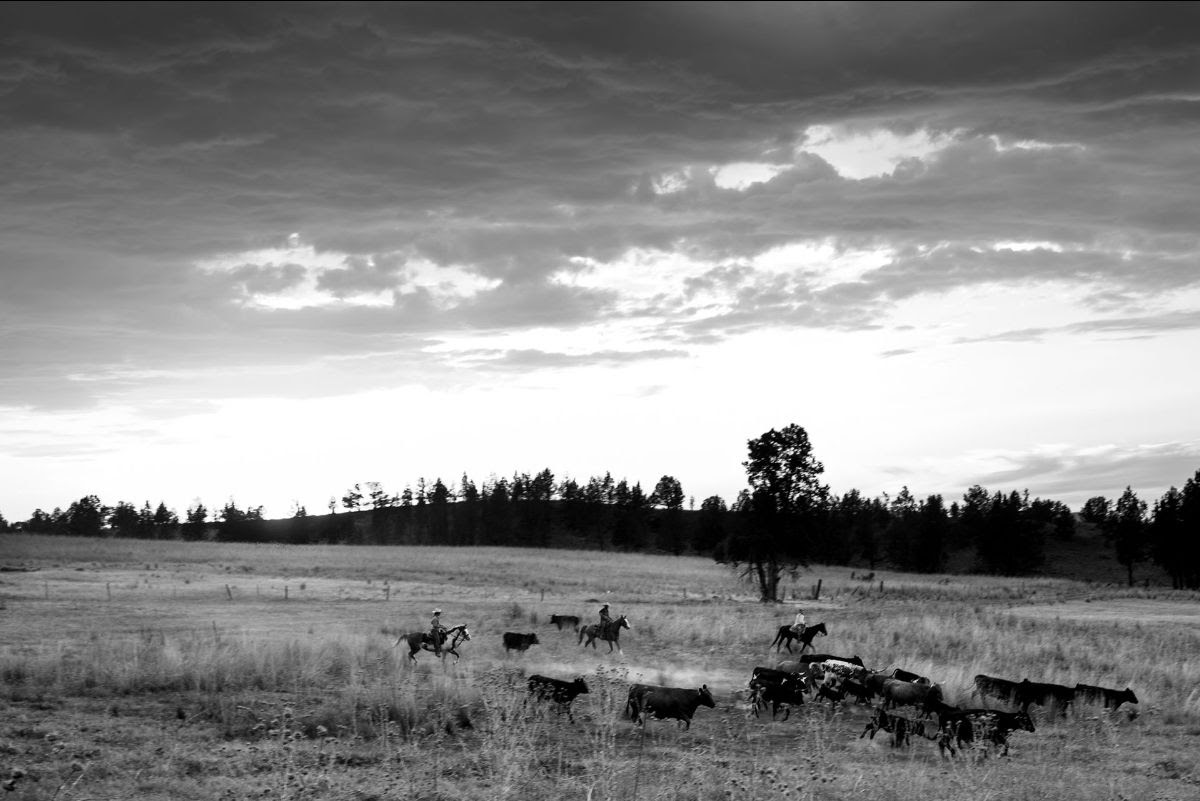
|
photo credit: Stephen Smith
|
How does the way we raise Pitchfork T beef fit into the regenerative, organic, sustainable scene we have going on?
Our beef is exclusively grass-fed, grass-finished. It is never grained or confined in a feed lot. We have our own breeding program with a momma-cow herd and bulls that produce our butcher steers each year as well as replacement heifers. Our cattle start as calves, spend their full yearling year with us and are butchered in their second year. Because we keep our cattle from birth to finish, we have a large herd at different ages with different stewardship needs, which requires a lot of land and intensive management to produce the best beef while caring for the land.
We don’t raise grass to feed beef. We graze beef to raise grass. Our cowboys are horseback with the cattle daily to guide their grazing in a way that prunes and grooms the landscape in a stimulating way to encourage and promote plant growth, thus supporting the maximum soil community with is our carbon sequestration team.
The new ranchland is in organic transition and our rangeland is historically and currently chemical free. We are slowly replanting our pastures and hay fields with a more diverse array of species and we are using our cattle herds exclusively for the fertility of the fields. We feed our cattle the hay that we produced back across the hay fields in the winter, where their manure, urine, and waste hay, add organic matter and nutrients back to the soil.
So, what does regenerative beef mean?
In the beef context it means giving more than you take to the land and environment and the multiple species that inhabit the same lands. Such as migratory mammals, birds, insects, and microbiota.
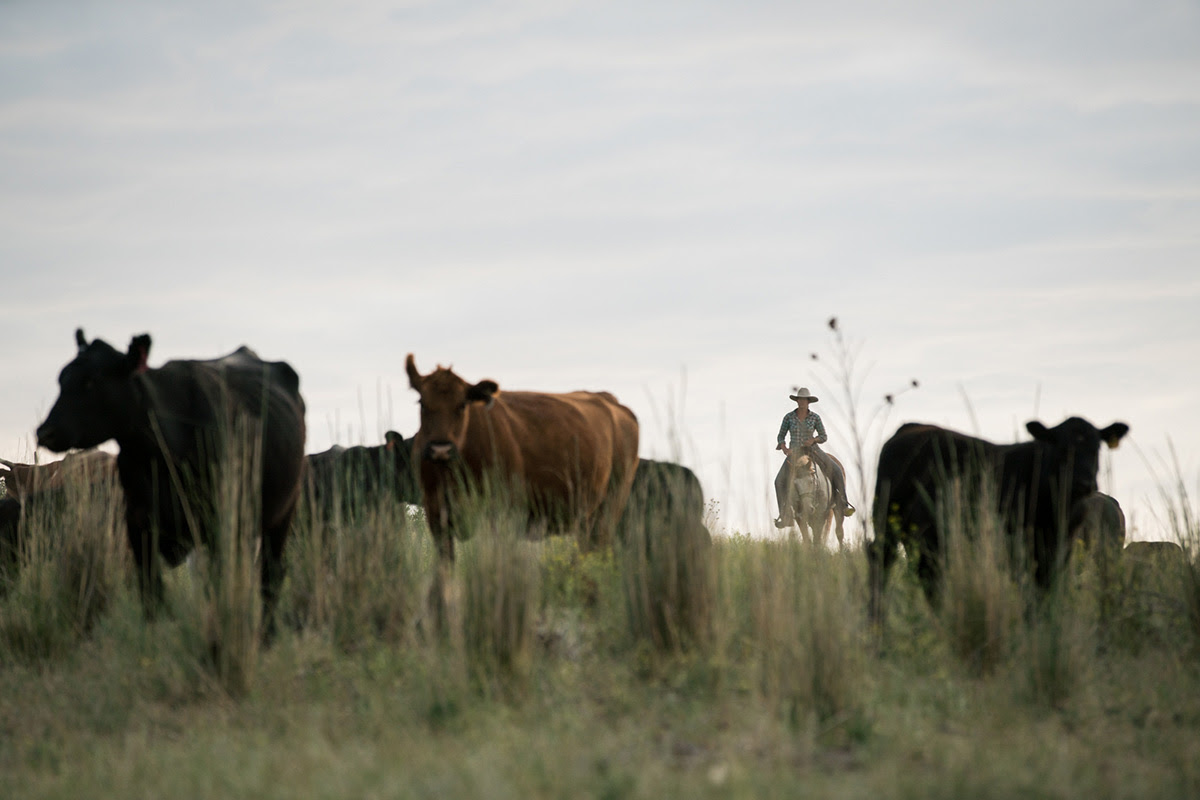
|
photo credit: Stephen Smith
|
Why grass fed and finished?
It’s the natural way. The momma cow’s milk producing ability off of grass is unsurpassable and finishing a beef on grass gives the cattle the same freedom they had when they were born.
But the grass finish isn’t just about the cow. It’s about the land the cows are on. It’s about the work the cow does before it hits the table. Finishing on grass in the same environment as they were born, gives them their life’s work. They get to live in a symbiotic relationship with as landscape that has evolved to support grazing herds. The cattle get to nourish the land they live on, as well as receiving the nourishment, minerals, space and variety of grasses they need to live a happy, full life.
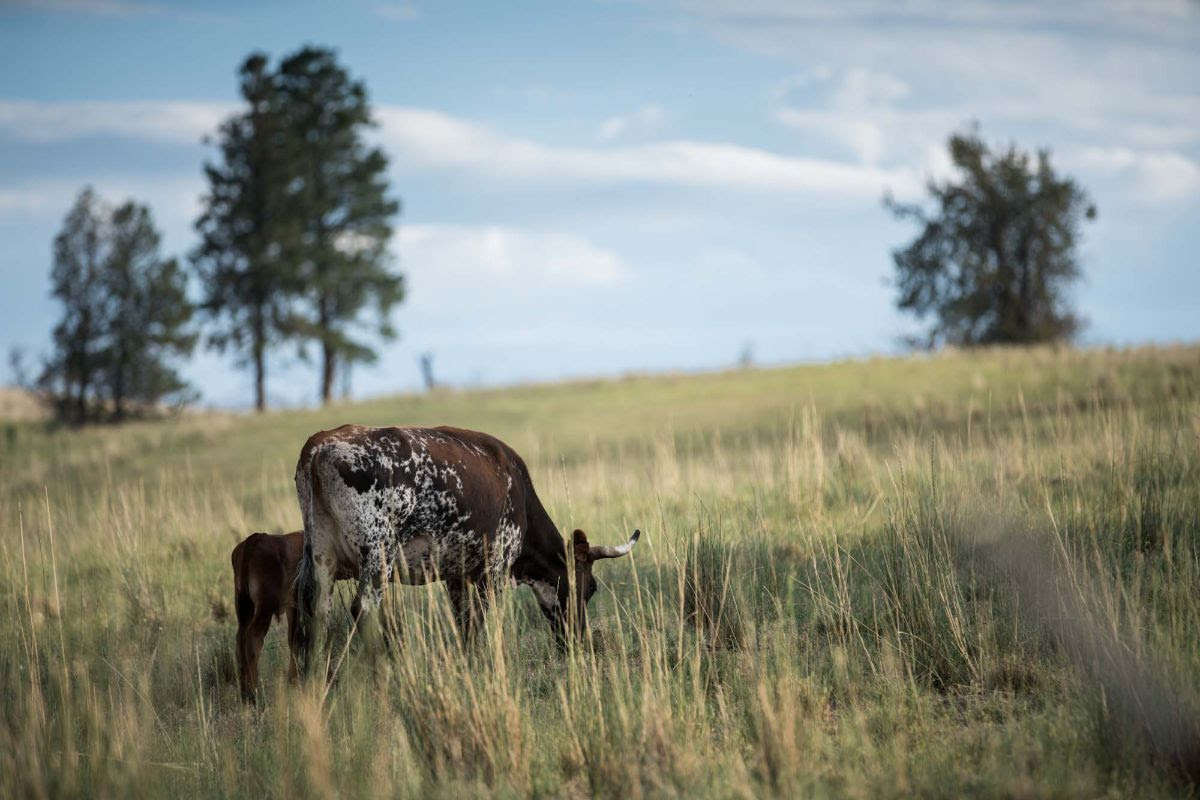
|
photo credit: Stephen Smith
|
What is the Rainshadow Organics Winter CSA |
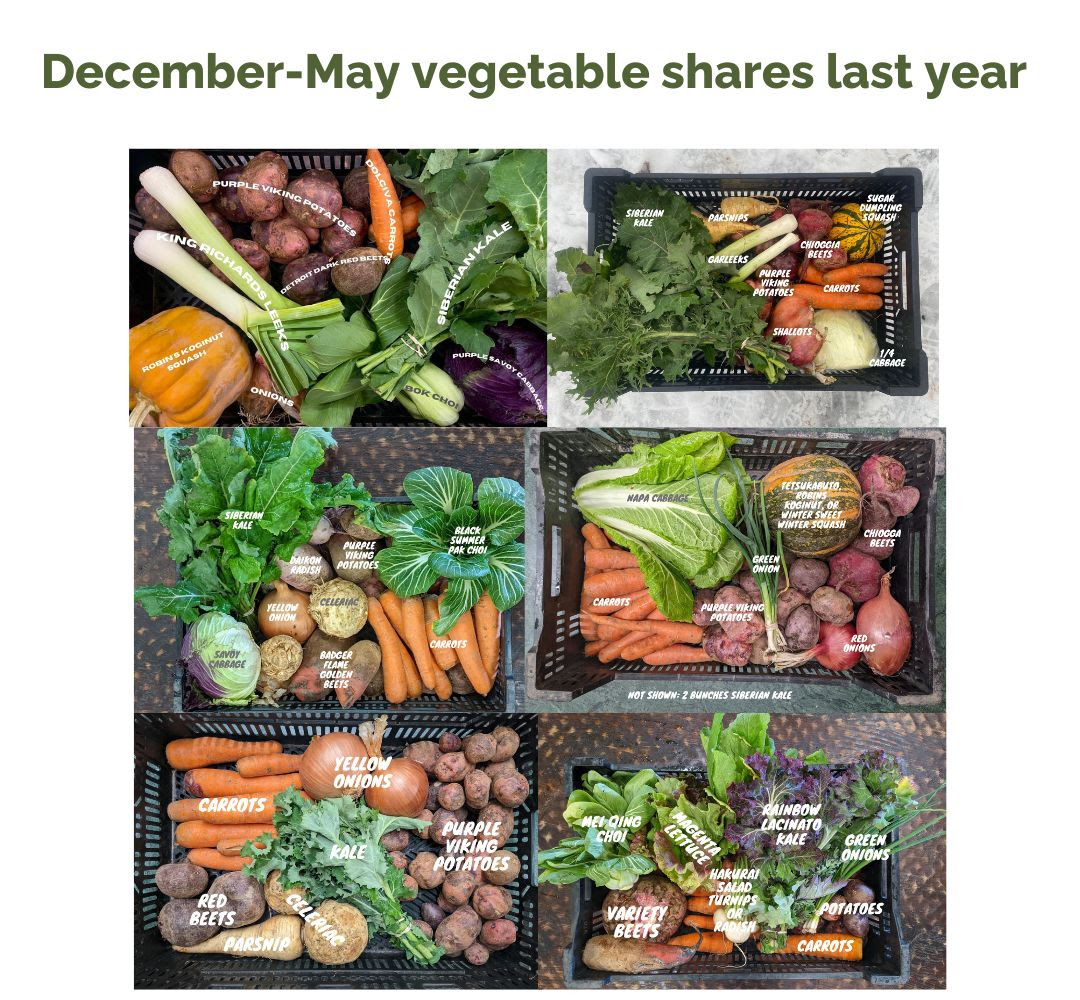
The Rainshadow Organics Winter CSA is a 7-month meat and vegetables monthly CSA (November-May) and can go a long way toward feeding your family for the whole month.
For $1183 or $169/month you get:
- 1 crate of mixed winter vegetables Over the course of the winter you will see: root vegetables (including potatoes, beets, parsnips, carrots, celeriac, diakon radish, sweet potatoes), varieties of winter squash, cabbage and leeks, alliums (including garlic, yellow and red onions, shallots), early and late season you might see green onions, lettuce heads, napa cabbage, rainbow/dino/purple curly kale, chard, and deep winter you will see Siberian Kale
- 10 lbs of meat/month. We average about 70% beef, 25% pork, 5% other things including 2-3 whole roasting chickens, 1 stewing hen, and a quart of lard and meat broth spread out between the 7 months. Our beef and pork cuts follow the averages of the animal, so you can expect way more ground beef and roasts then steaks and bacon!
- First Thursday of the month delivery. We deliver in the afternoon to Sisters & Bend, or you can always pick up at the Farm Store Friday & Saturday after we deliver to Bend.
- The Perks: Fewer trips to the grocery store & a direct relationship and connection with Rainshadow farmers; monthly CSA newsletter with news from the farm, recipe ideas, food storage, and preservation tips; access to locally grown, certified organic vegetables and pasture raised meat free of GMOs and chemicals; knowing that your food sourcing decision supports both the local economy and the local environment; pay in full or pay monthly using your credit/debit card or SNAP/EBT
For more information, check out our Winter CSA page here. Or click on the buttons below to purchase your Winter CSA today!
|
|
BONUS!
We’ve already got a November event brewing! We are so excited to announce the first of two partnership dinners we’ll be hosting with Crux fermentation project!
On November 19th, join us for a four course farm-to-table dinner with a beer pairing! During this dinner we will talk about an exciting project that we have been working on with Crux. Trust us, you don’t want to miss this.
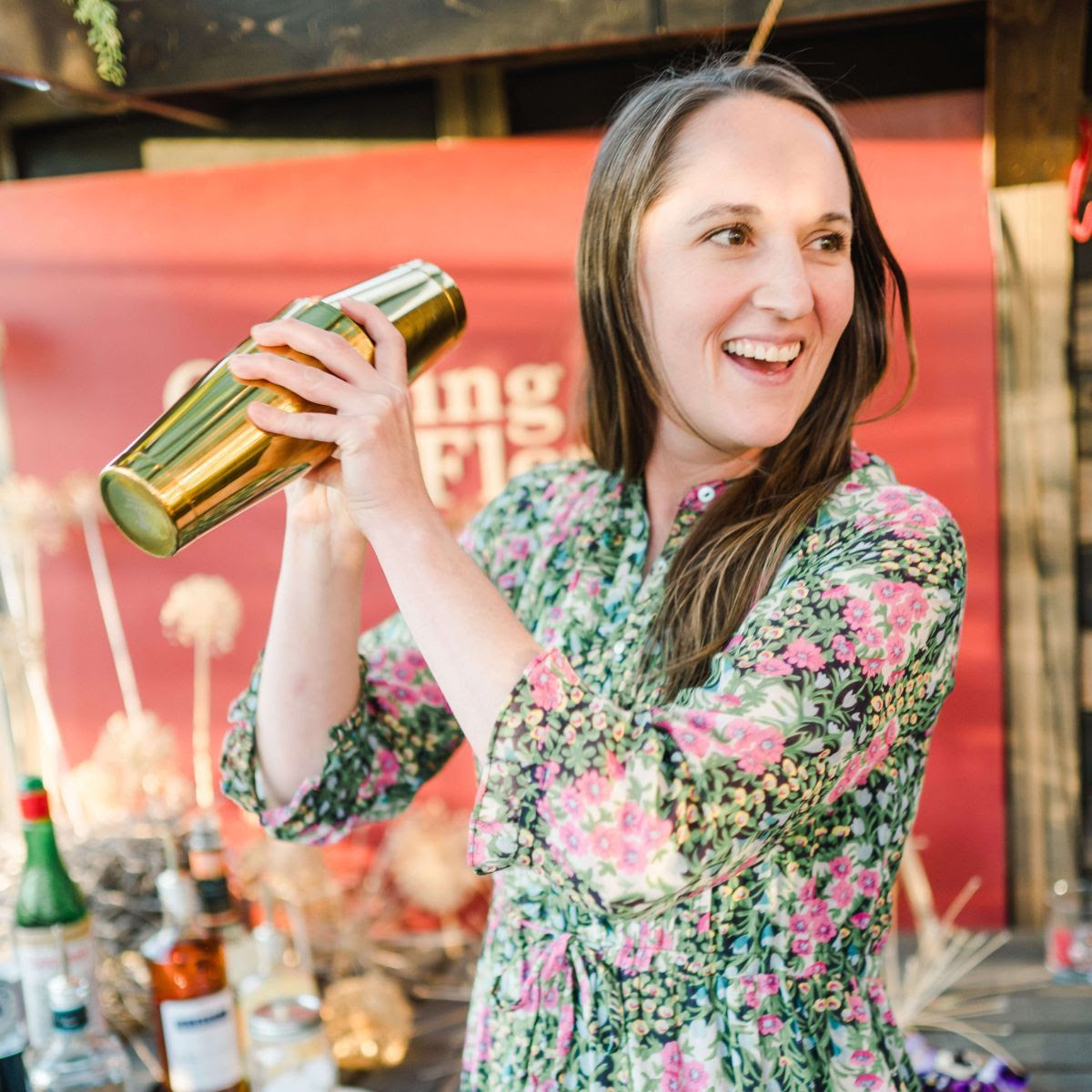
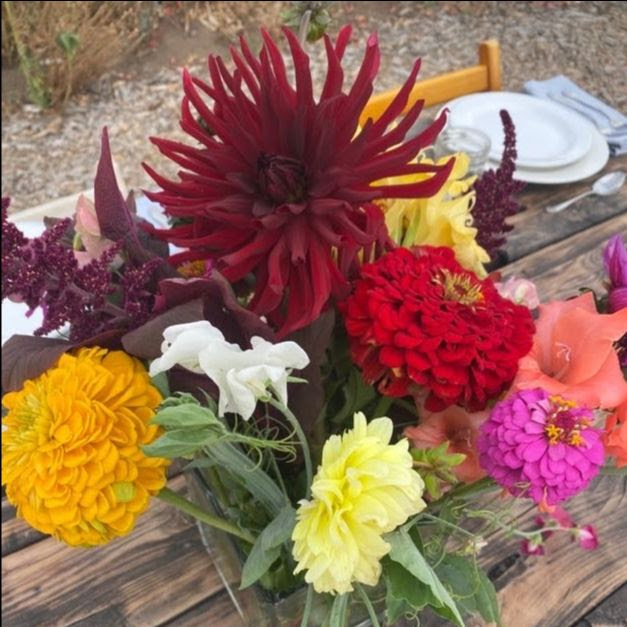
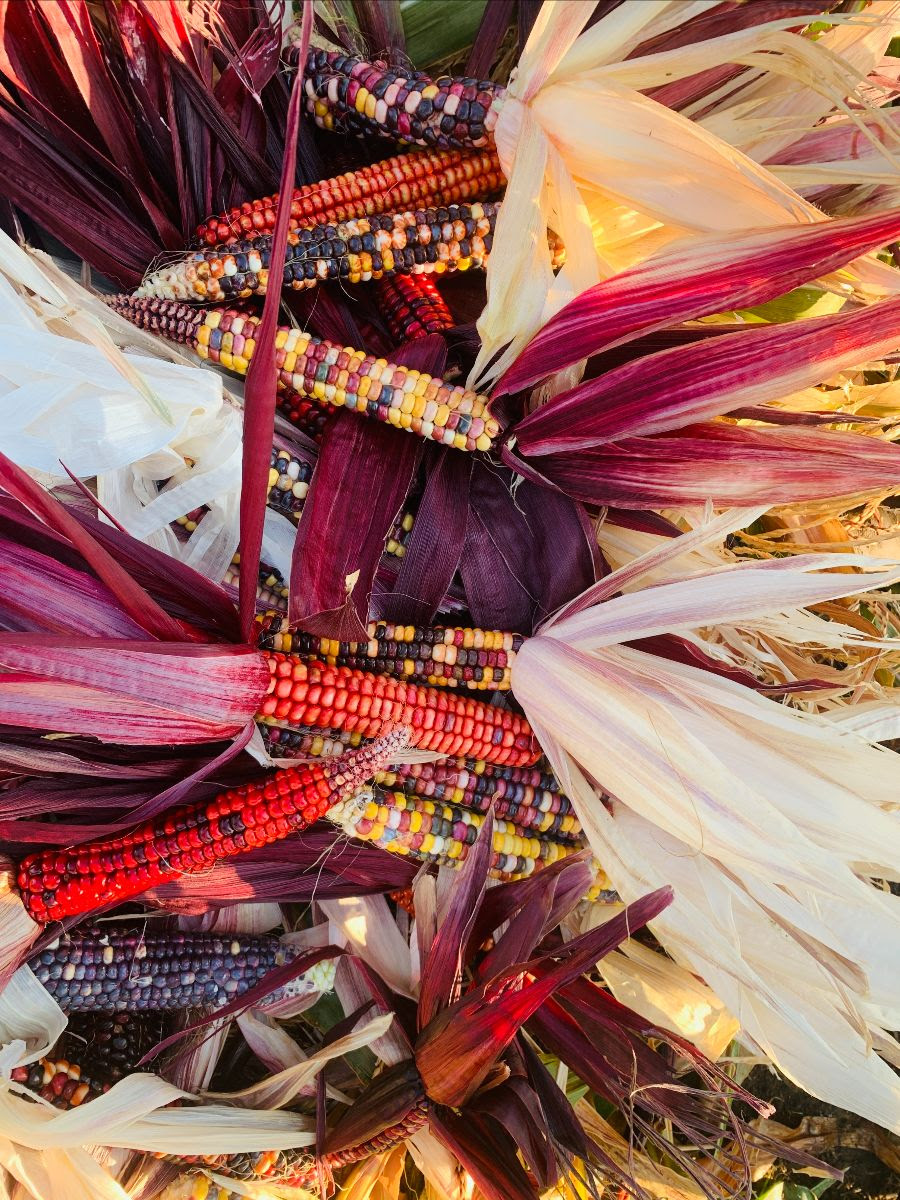
|
photo credit: Caroline Crews
|



